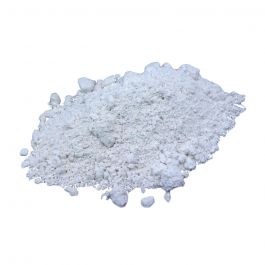- Language
- 🇺🇸
- Joined
- Mar 1, 2024
- Messages
- 343
- Reaction score
- 475
- Points
- 63
Nebylo by to kvůli hliníku podezřelejší? pak je tak nějak zřejmé, že něco skrýváte. ale to já nevím, nikdy předtím jsem drogy poštou neposílal.
- Language
- 🇬🇧
- Joined
- Jan 19, 2024
- Messages
- 45
- Reaction score
- 31
- Points
- 18
Mnoho lidí říká, že hliník pomáhá blokovat rentgenové záření, ale já si myslím, že je to mýtus.
Olovo pomáhá blokovat rentgenové záření díky své hustotě 11400 kg/m³, ale hliník má pouze 2700 kg/m³, takže si myslím, že je to zbytečné.
je dobrý jen na zabalení drogy.
Olovo pomáhá blokovat rentgenové záření díky své hustotě 11400 kg/m³, ale hliník má pouze 2700 kg/m³, takže si myslím, že je to zbytečné.
je dobrý jen na zabalení drogy.
↑View previous replies…
- Language
- 🇺🇸
- Joined
- Jan 23, 2024
- Messages
- 112
- Reaction score
- 39
- Points
- 28
- Deals
- 12
Blbost, hliníková fólie neblokuje rentgenové záření.
Ten váš doping je hromada organických molekul. organické vypadají na rentgenovém snímku jinak než kovové a dají se rozlišit.
pokud chcete blokovat rentgenové záření, musíte svůj dope ponořit do podobného organického prostředí, aby vypadal jako něco neškodného. ale v tomto bodě končím, protože nejsem ochoten prozradit své vlastní metody utajení.
Ten váš doping je hromada organických molekul. organické vypadají na rentgenovém snímku jinak než kovové a dají se rozlišit.
pokud chcete blokovat rentgenové záření, musíte svůj dope ponořit do podobného organického prostředí, aby vypadal jako něco neškodného. ale v tomto bodě končím, protože nejsem ochoten prozradit své vlastní metody utajení.
- Language
- 🇨🇿
- Joined
- May 8, 2024
- Messages
- 48
- Reaction score
- 10
- Points
- 8
Theoretically aluminum can shield against electromagnetic waves, also x-ray.
But the thin layers used mostly are not enough.
There are different ways through which a material can block electromagnetic waves.
Scattering and absorption which often happens in high density, but it also works through the conductivity of a metal, and aluminum and copper for example have a good conductivity, and this allows them to absorb energy from the electromagnetic radiation pretty well, because of their free electrons.
But you would need a thick layer of aluminum, the normal foil is not going to do that well-
But the thin layers used mostly are not enough.
There are different ways through which a material can block electromagnetic waves.
Scattering and absorption which often happens in high density, but it also works through the conductivity of a metal, and aluminum and copper for example have a good conductivity, and this allows them to absorb energy from the electromagnetic radiation pretty well, because of their free electrons.
But you would need a thick layer of aluminum, the normal foil is not going to do that well-
- Language
- 🇨🇿
- Joined
- May 8, 2024
- Messages
- 48
- Reaction score
- 10
- Points
- 8
Also the shielding ability of aluminum is better (lot better) at lower frequencies, and thickness would need to be increased a lot to shield effectively against x-rays. Also at such high frequencies like x-ray denser materials with high Z are normally required because they have a higher probability of interacting with high energy electromagnetic waves, but theoretically every conductor can block them t some point, also aluminum, but you need a very thick layer which is not practical.

